Using organic fertilizers is a win-win situation.
Mr. Tran Ngoc Chinh, Head of Nam Dinh Department of Crop Production and Plant Protection, shared that promoting the production and use of organic fertilizers brings many benefits and values to agricultural production.
Accordingly, taking advantage of available raw materials in agricultural production, providing nutrients for crops helps plants grow in a balanced and stable manner, increasing nutritional content, providing humus to the soil, and balancing microorganisms in the soil.
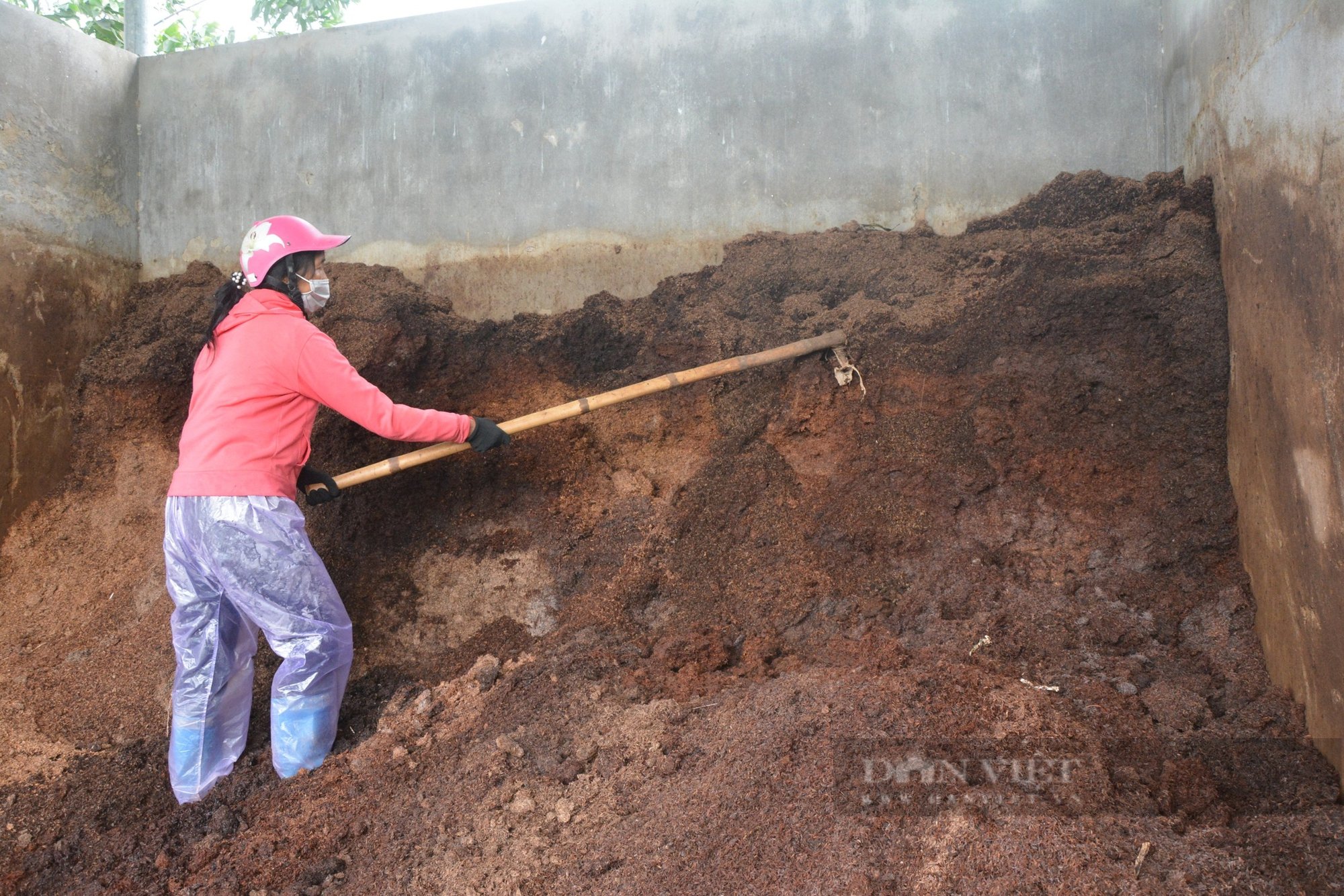
Promoting the production and use of organic fertilizers brings benefits and value to agricultural production. Photo: Mai Chien.
In addition, it limits soil erosion and leaching, reduces environmental pollution, limits the use of inorganic fertilizers, and saves irrigation water. Improves the quality of agricultural products, limits pests and diseases on crops, and increases product value per unit area.
However, according to Mr. Chinh, the development of organic fertilizer production at the household, farm and ranch scale also faces many difficulties. Specifically, farmers' awareness of organic fertilizer production techniques is limited and there is a lack of human resources.
Small-scale production results in high costs; long processing time, low nutritional content. In particular, capital and facilities such as factories, machinery, etc. for organic fertilizer production are limited; high costs of organic fertilizer production, high selling prices.
Besides, consumers do not trust and find it difficult to distinguish between organic products and other conventional products.
To overcome the above difficulties, Mr. Chinh said that localities need to increase propaganda to raise people's awareness about the production and use of organic fertilizers for sustainable agricultural development to replace chemical fertilizers.
Strengthen propaganda and raise consumer awareness of organic agricultural products to stimulate people to promote organic agricultural production, including the production and use of organic fertilizers.
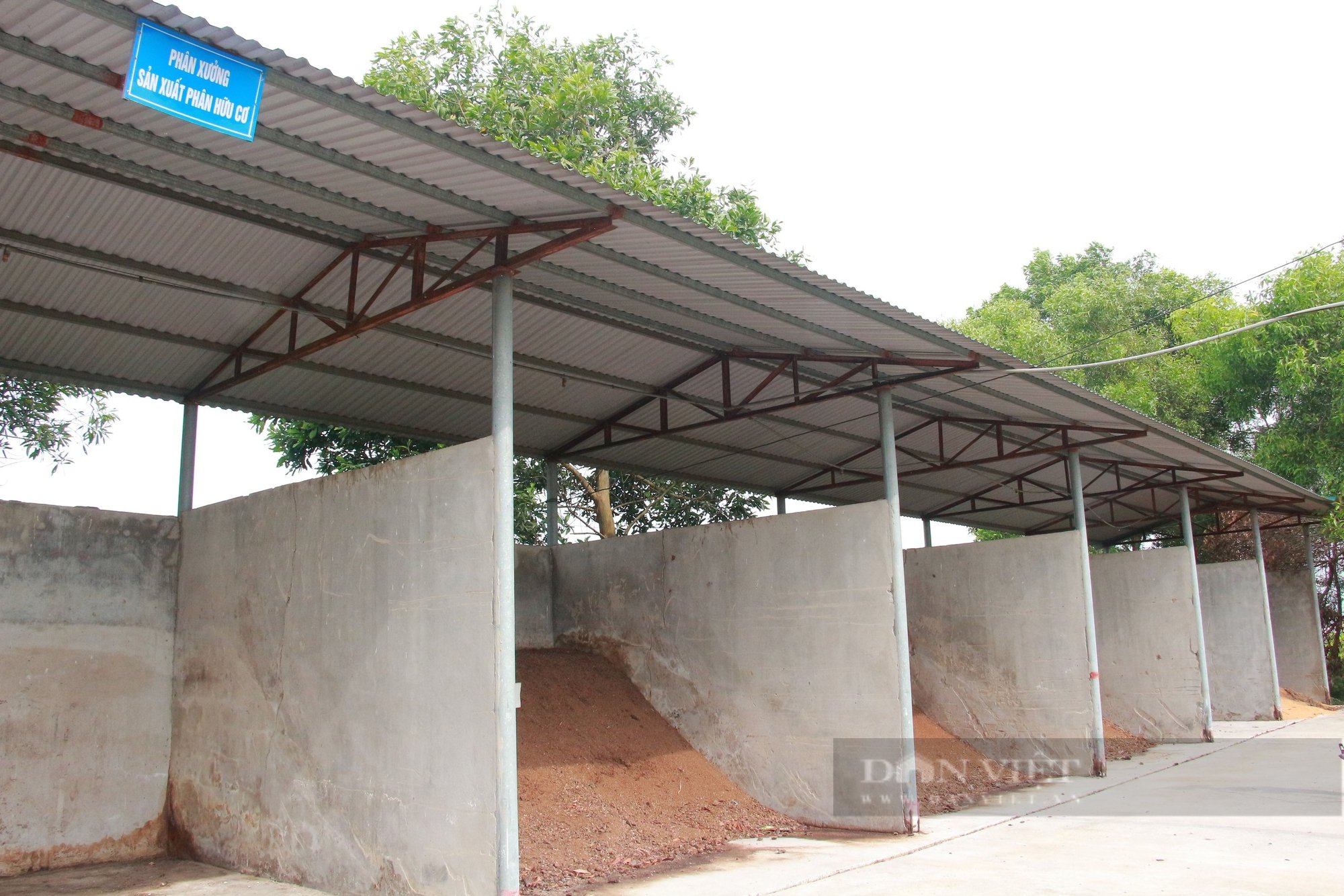
Organic fertilizer production area of Bac Cuong Agricultural Cooperative (Yen Cuong commune, Y Yen district, Nam Dinh province). Photo: Mai Chien.
At the same time, support facilities such as factories, machinery, etc., support the issuance of organic fertilizer circulation certificates for large production facilities. Encourage organizations and enterprises to research technology, organize production, and supply organic fertilizers with large output and reasonable prices.
"Investing in science and technology, applying high technology, and smart agriculture is the scientific foundation for organic agricultural production following the trend of the times; investing in large-scale agricultural processing technology," Mr. Chinh added solutions to overcome the problem.
According to Mr. Chinh, Nam Dinh province currently does not have a separate policy for the production and use of organic fertilizers. However, in recent years, the province has been applying a combination of central and provincial policies to support and encourage the development of organic agriculture.
In particular, combining the policy of supporting rural vocational training to train workers in organic agricultural production models; utilizing legal funding sources from the National Target Program on New Rural Development, the population - health target program to support cultivation, livestock and aquaculture facilities to invest in innovation of production technology, apply good agricultural practices VietGAP, organic, build brands, product designs, promote and connect product consumption.
Many agricultural areas are "fed" with organic fertilizers.
According to the Nam Dinh provincial agricultural sector, the amount of fertilizers of all kinds used by people in the province every year is about 165,000 tons. Of which, 155,000 tons are inorganic fertilizers and 10,000 tons are organic fertilizers of all kinds, mainly microbial organic fertilizers and partly mineral organic fertilizers.
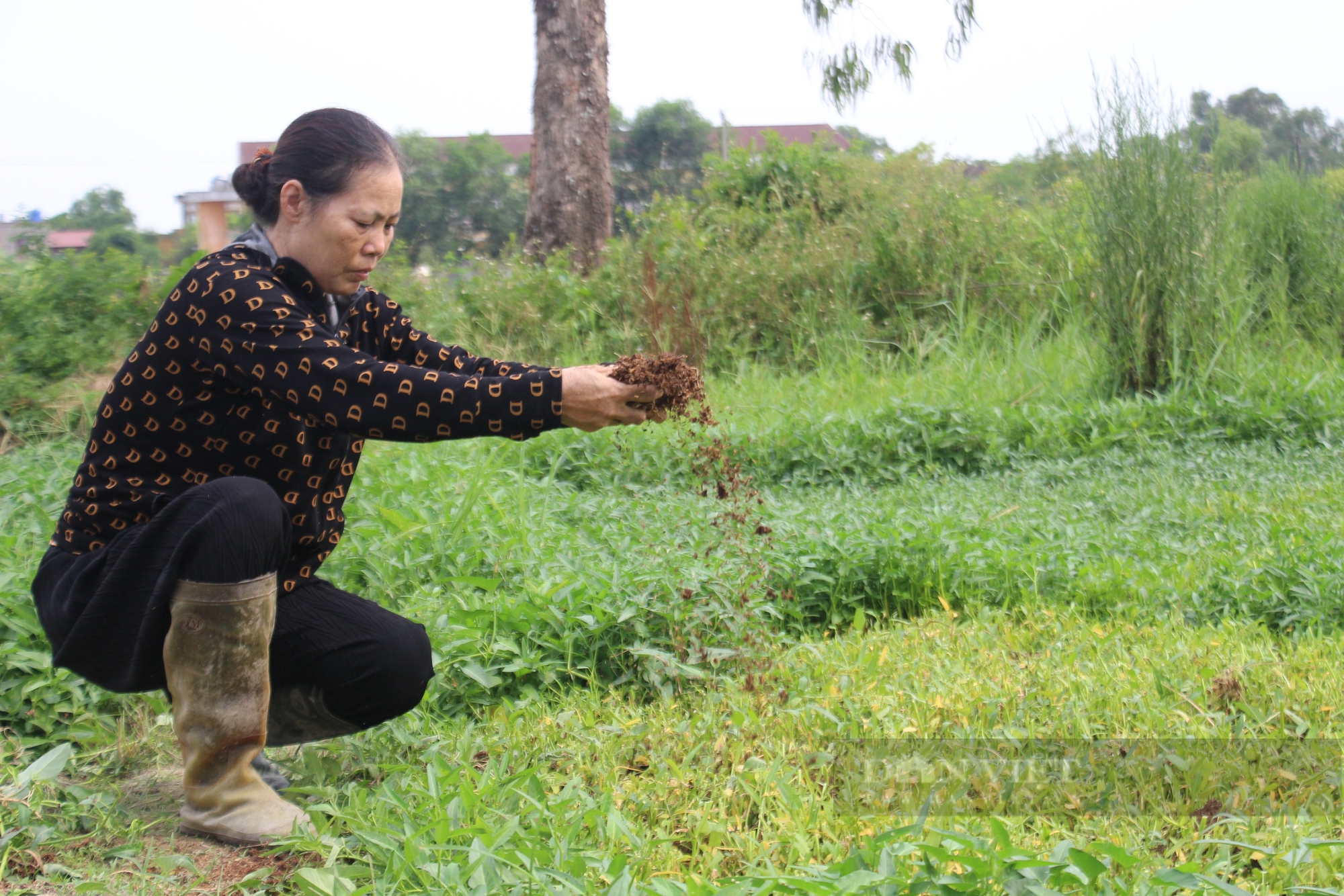
Farmers in Yen Cuong commune, Y Yen district, Nam Dinh province feed vegetables with organic fertilizer. Photo: Mai Chien.
Mr. Tran Ngoc Chinh informed that up to now, in Nam Dinh province, a number of organic production models and organic orientations have been formed, with an area of about 1,000 hectares.
For example: Rice seed production model in Hai Hau, Truc Ninh, Xuan Truong districts; high-quality rice production in Hai Hau, Truc Ninh, Nghia Hung districts...
High-tech model of growing melons and vegetables in greenhouses, according to VietGAP in Vu Ban. Model of growing vegetables according to organic standards in Xuan Truong district.
Organic fertilizer production model using Japanese technology to produce safe vegetables, VietGAP in Yen Cuong commune (Y Yen district)...
According to our research, Nam Dinh province is one of 6 localities selected to participate in the "Proper Fertilizer Use" Project chaired and funded by the Department of Foreign Agricultural Affairs (US Department of Agriculture - USDA), the Plant Protection Department (Ministry of Agriculture and Rural Development) is the project owner.
In Nam Dinh, Nam Dinh Department of Crop Production and Plant Protection has selected Nam Cuong Agricultural Production and Service Cooperative (Yen Cuong commune, Y Yen district) to implement a model of processing straw into organic fertilizer using mechanization combined with biology.
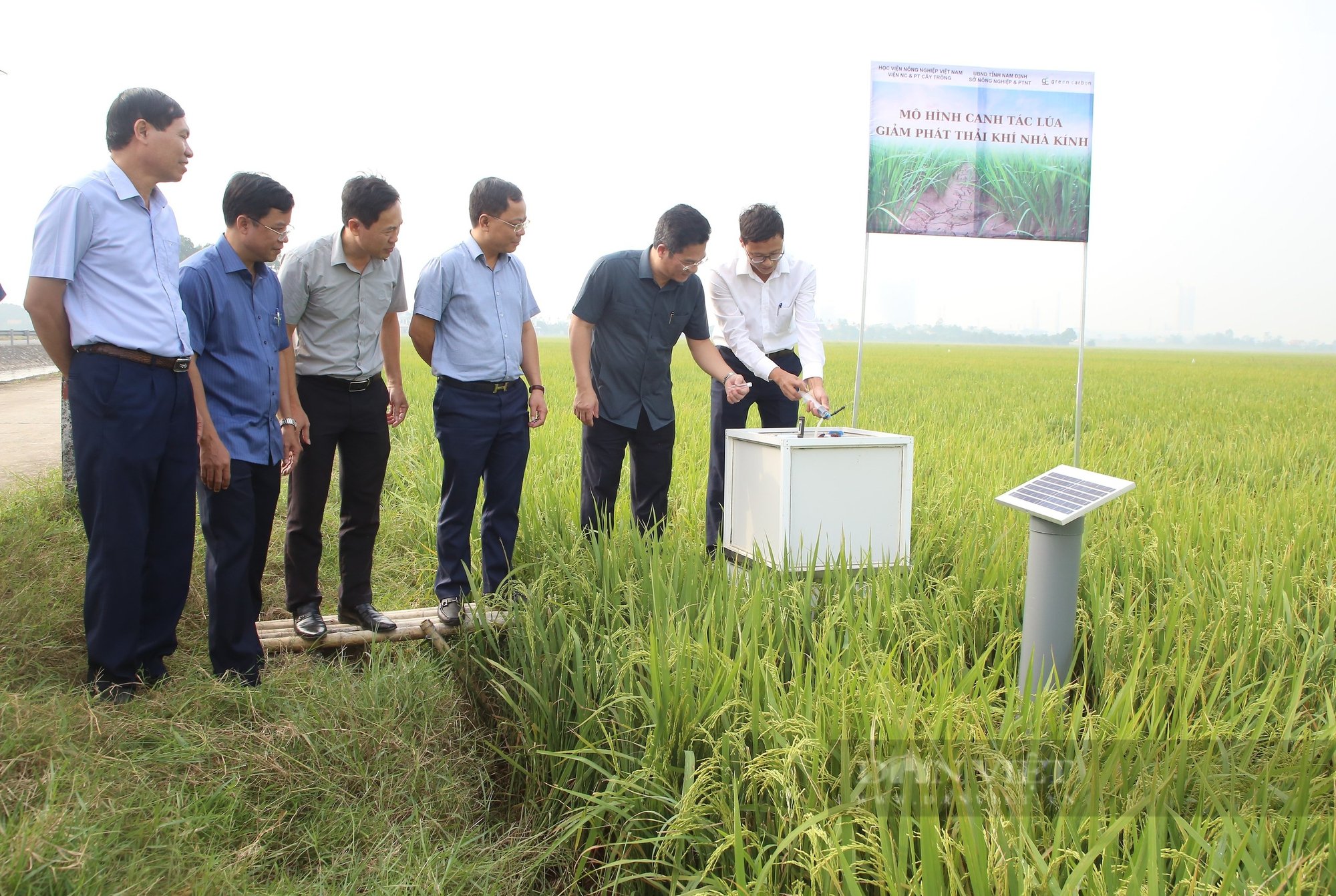
The model "Water-saving rice cultivation, creating carbon credits in sustainable rice cultivation" was implemented in the fields of Yen Khang commune, district of Y Yen, Nam Dinh province. Photo: Mai Chien.
During the implementation process, consultants from the International Rice Research Institute (IRRI) built a model and provided new technology guidance on processing rice by-products into organic fertilizer to local people.
In addition, IRRI also transferred the technology of composting straw using a self-propelled mixer, with a capacity of about 138 - 300m3 of straw per mix. The composting time is about 45 days, half that of traditional composting methods such as manual composting or using a shovel.
Mr. Nguyen Van Du, Director of Nam Cuong Cooperative (Yen Cuong Commune, Y Yen District) expressed that we are very happy to receive guidance from IRRI experts on organic fertilizer production techniques and to receive a self-propelled organic fertilizer mixer within 2 years.
"I will work with the members of the cooperative to operate effectively, and at the same time share and spread my experience widely to people in neighboring areas," said the Director of Nam Cuong Cooperative.
According to Mr. Nguyen Van Huu, Deputy Director of the Department of Agriculture and Rural Development of Nam Dinh province, in recent years, the province has strongly shifted from using inorganic fertilizers to organic fertilizers, reflected in the formation of many product consumption chains.
Currently, Nam Dinh province has many policies to encourage the use of organic fertilizers through training sessions to change awareness about fertilizer use, as well as increase the use of measures to treat straw and agricultural by-products.
Source: https://danviet.vn/phan-huu-co-co-tac-dung-gi-tai-sao-ngay-cang-nhieu-nong-dan-nam-dinh-thich-lam-phan-huu-co-20241011215253252.htm


![[Photo] Prime Minister Pham Minh Chinh chairs meeting on science and technology development](https://vphoto.vietnam.vn/thumb/1200x675/vietnam/resource/IMAGE/2025/5/17/ae80dd74c384439789b12013c738a045)

![[Photo] More than 17,000 candidates participate in the 2025 SPT Competency Assessment Test of Hanoi National University of Education](https://vphoto.vietnam.vn/thumb/1200x675/vietnam/resource/IMAGE/2025/5/17/e538d9a1636c407cbb211b314e6303fd)


![[Photo] Readers line up to visit the photo exhibition and receive a special publication commemorating the 135th birthday of President Ho Chi Minh at Nhan Dan Newspaper](https://vphoto.vietnam.vn/thumb/1200x675/vietnam/resource/IMAGE/2025/5/17/85b3197fc6bd43e6a9ee4db15101005b)
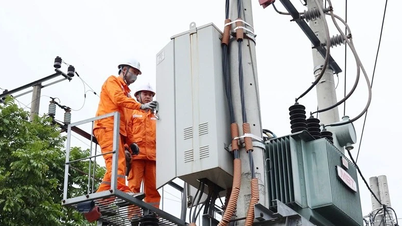

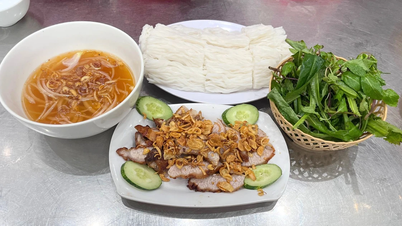

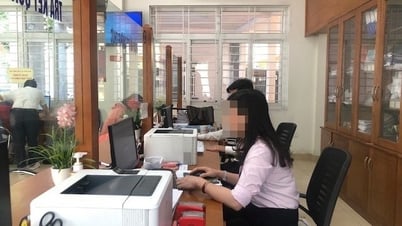

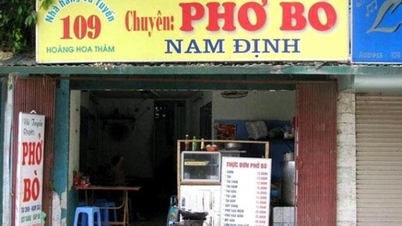

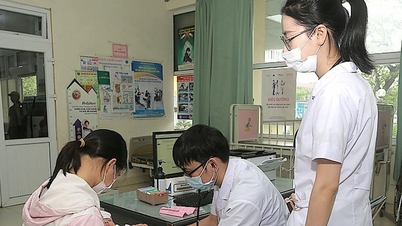

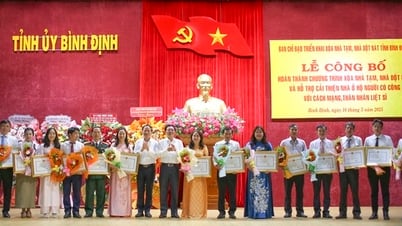

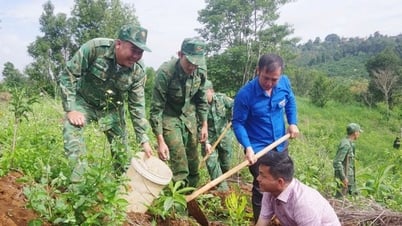

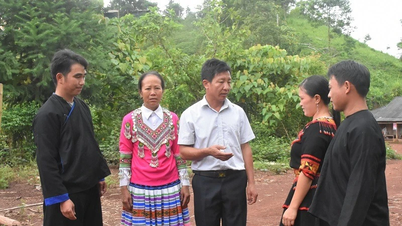
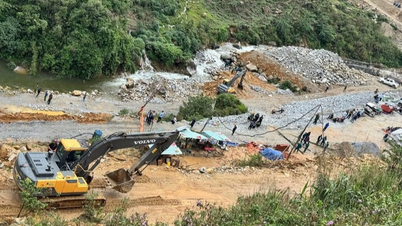
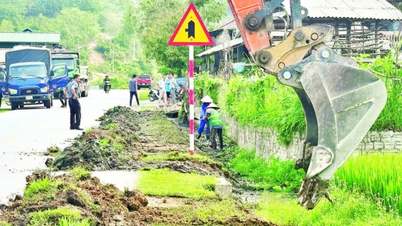







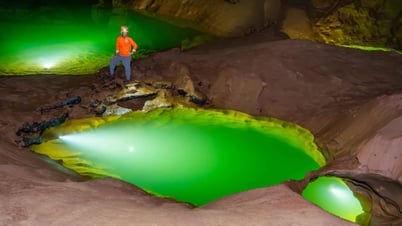
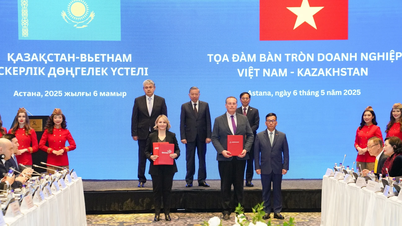

![[Photo] Nearly 3,000 students moved by stories about soldiers](https://vphoto.vietnam.vn/thumb/1200x675/vietnam/resource/IMAGE/2025/5/17/21da57c8241e42438b423eaa37215e0e)




















































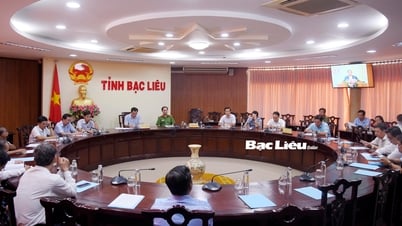
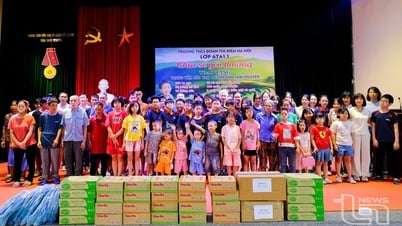

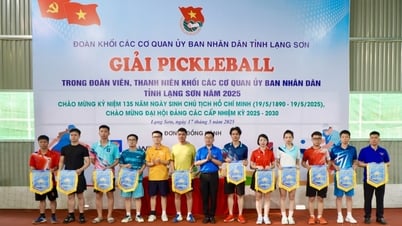

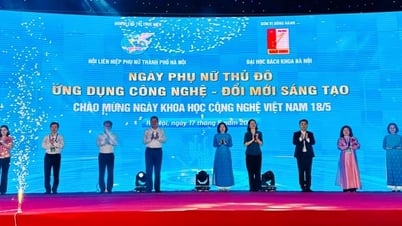














Comment (0)